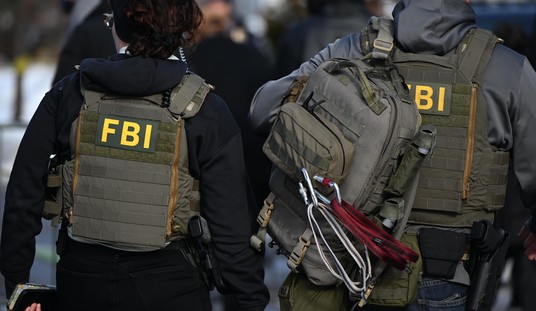The Washington Post editorial board embarrassed itself yesterday, but today they score a direct hit on Barack Obama and the deal he cut to escape the vigilance required to contain Iran. The editors remind readers about the principles that the US — and Obama himself — insisted on having in any deal with Tehran to end sanctions over their nuclear-weapons program. Even off of Obama’s own demands, made just three years ago, yesterday’s agreement in principles is an unmitigated defeat:
None of Iran’s nuclear facilities — including the Fordow center buried under a mountain — will be closed. Not one of the country’s 19,000 centrifuges will be dismantled. Tehran’s existing stockpile of enriched uranium will be “reduced” but not necessarily shipped out of the country. In effect, Iran’s nuclear infrastructure will remain intact, though some of it will be mothballed for 10 years. When the accord lapses, the Islamic republic will instantly become a threshold nuclear state.
That’s a long way from the standard set by President Obama in 2012 when he declared that “the deal we’ll accept” with Iran “is that they end their nuclear program” and “abide by the U.N. resolutions that have been in place.” Those resolutions call for Iran to suspend the enrichment of uranium. Instead, under the agreement announced Thursday, enrichment will continue with 5,000 centrifuges for a decade, and all restraints on it will end in 15 years.
At least as importantly, the containment of Iran will end with this deal — up front — with no commitment to ending their support for terrorism:
The proposed accord will provide Iran a huge economic boost that will allow it to wage more aggressively the wars it is already fighting or sponsoring across the region. Whether that concession is worthwhile will depend in part on details that have yet to be agreed upon, or at least publicly explained.
This is a key point, one so important that Benjamin Netanyahu traveled all the way to the US to make sure someone made it. Even easing up on the sanctions gave Iran billions of dollars to put into its attempts to conduct clandestine wars in the region. They’ve shipped arms to Hamas, spent a fortune bolstering Hezbollah in their attempts to keep Bashar al-Assad in power in Syria, and also to threaten Israel from its north. Now the Iranians have used the Houthis and Ali Saleh to conduct a coup against the Yemen government that had been cooperative with the US and Saudi Arabia against al-Qaeda, giving Iran a potential opportunity to choke off shipping through the Suez Canal if they so choose.
What happens when that economic containment ends? Iran will have plenty of cash to fund Hezbollah, Hamas, the Houthis, and any number of proxy groups to further its ambitions of regional domination.
Barack Obama framed this deal yesterday as the only alternative to war, which he claims is what his critics preferred:
“When you hear the inevitable critics of the deal sound off, ask them a simple question,” Obama said. “Do you really think that this verifiable deal, if fully implemented, backed by the world’s major powers is a worse option than the risk of another war in the Middle East?” …
He dismissed hawks who said that military strikes would work better than diplomacy. U.S. bombs, he argued, would set back Iran’s program for only a few years. “Meanwhile, we’d ensure that Iran would race ahead to try and build a bomb,” he said[.]
Actually, that’s not what critics wanted. They wanted all of the sanctions to remain in place until we at least got the deal that Obama outlined in 2012, not what he delivered yesterday — and an end to Iranian sponsorship of terror in the region and around the world, such as in Buenos Aires. The deal Obama outlined yesterday won’t stop more wars from erupting in the Middle East; it will provide a cash avalanche for Iran to greatly expand its proxy wars in the Middle East, targeting Israel, Jordan, and Saudi Arabia. You could smell the aroma from Obama’s burning straw man from Washington to Tel Aviv.
And as the Post’s editors note, it’s not going to stop Iran from developing a nuclear weapon, either. All this does is delay it until everything else falls into place for Iran, which the extra cash will help make a reality too — and that’s if they comply with the deal, which their track record strongly suggests is a sucker bet.
Janet Eilperin and Greg Jaffe write that “this was not a ‘Mission Accomplished’ moment,” but it’s much more so than the one more popularly associated with George W. Bush. To quote Winston Churchill under remarkably similar circumstances after Munich: We have suffered an unmitigated defeat. And just like in 1938, our national leader is painting it as a victory over the warmongers without any recognition that he’s just set loose the real warmongers, and what follows will be disaster and ignominy.







Join the conversation as a VIP Member